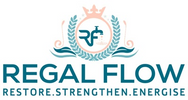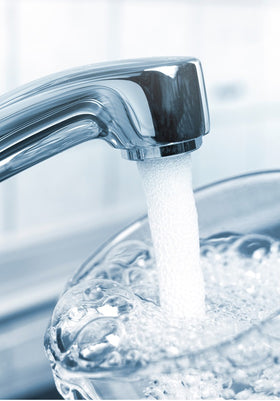
Your Ultimate Guide to Reverse Osmosis: FAQs and Insights
Curious about how Reverse Osmosis (RO) can turn your tap water into pure goodness? RO is a game-changer for clean, tasty water, and even countertop dispensers are getting in on the action! In Reverse Osmosis FAQs: Answers to Common Questions, we cover everything from installation tips to water-saving hacks—so stick with us and dive into the details, all in a splash!
Understanding the Basics of Reverse Osmosis
What is Reverse Osmosis (RO)?
Reverse Osmosis (RO) is the process of purifying water by pushing it through a special membrane. This membrane acts like a sieve, letting only water molecules pass through while blocking harmful substances like bacteria, heavy metals, and dissolved salts. Think of it as your water’s personal bouncer – only the good stuff gets through!
How Does Reverse Osmosis Work?
RO works by using pressure to force water through a semi-permeable membrane. The process is the opposite of how water normally moves through a membrane in osmosis, where water flows from an area of lower concentration to a higher one. With RO, pressure forces water from a higher concentration to a lower one, effectively filtering out impurities.
What are the Benefits of Reverse Osmosis Water?
There are plenty of perks to drinking RO water. First off, it’s cleaner and safer, free from chemicals like chlorine, lead, and other nasties. This means it’s not only better for your health but also improves the taste and smell of your water. Imagine ditching the metallic taste of tap water or the strong mineral tang – it’s like a fresh start for your water glass!
Common Questions About RO Systems
What Does a Reverse Osmosis System Remove?
RO systems are like a detox for your water. They can remove a wide range of contaminants, including bacteria, viruses, chlorine, fluoride, and heavy metals such as lead and mercury. In short, anything that could be lurking in your water that you don’t want in your glass gets filtered out.
Is Reverse Osmosis Water Safe to Drink?
Absolutely! RO water is not only safe to drink, but it’s also cleaner and purer than tap water. However, like all filtration systems, it's important to maintain your RO unit. If filters are neglected, the system could start to deliver less-than-ideal water quality, but with regular upkeep, you’re good to go.
Does RO Remove Essential Minerals?
While RO systems do a great job of removing contaminants, they also strip out some essential minerals like calcium and magnesium. While this makes the water ultra-pure, some people opt for a remineralisation filter to put the good stuff back. If you’re concerned about the loss of minerals, it’s a simple fix!
What is the pH of Reverse Osmosis Water?
RO water typically has a slightly acidic pH, usually between 5.5 and 7.0. This happens because the filtration process removes minerals that would normally help buffer the water. If you find the pH a concern, some RO systems come with remineralisation filters to restore balance.
How Much Waste Water Does an RO System Produce?
Traditionally, RO systems were notorious for wasting water. For every litre of purified water, you’d get 3-4 litres of wastewater. But don’t panic! Modern systems have improved drastically, with many newer models wasting only around 1.5 litres for every litre of filtered water. So, while there’s still some waste, it’s nowhere near as bad as it used to be.
RO System Installation and Maintenance
How is a Reverse Osmosis System Installed?
Installing an RO system is straightforward, but it does depend on the type of system you’ve chosen. If you’re going for an under-sink model, you’ll need to connect it to your water supply and drainage. Don’t worry, though – most systems come with detailed instructions to guide you through the process.
Can I Install an RO System Myself?
Yes, in many cases, you can install an RO system yourself – especially if it’s a countertop model. They’re generally user-friendly and don’t require any plumbing expertise. For under-sink models or more complicated installations, however, you might want to call in a professional to ensure it’s set up properly.
How Often Do RO Filters Need to Be Changed?
To keep your RO system in top condition, you’ll need to replace the filters regularly. Pre-filters typically need replacing every 6 months, while the RO membrane can last anywhere between 12-24 months. Post-filters should be changed every 6-12 months to maintain that fresh taste.
How Long Does an RO Membrane Last?
The RO membrane is the heart of the system, so it’s important to look after it. It usually lasts between 2 to 3 years, depending on water quality and how often you use the system. If your system starts to slow down or the water tastes off, it might be time to replace the membrane.
What is the Cost of Maintaining an RO System?
Maintaining an RO system doesn’t break the bank. On average, you’ll spend between £50 and £100 annually on replacement filters and membranes. This is a small price to pay for the convenience and peace of mind that comes with having clean water at home.
Troubleshooting Common RO System Issues
Why is My RO System Slow?
If your RO system is producing water at a snail’s pace, there could be a few reasons. Clogged filters are the usual culprit, so check them and replace them if needed. Low water pressure or a faulty pump can also contribute to a slow system, so it’s worth investigating.
Why Does My RO System Make Noise?
A bit of noise is normal, especially during the filtration process, but if it’s too loud or strange, something might be wrong. Check for air leaks, loose parts, or clogged filters – these can all cause noise. Sometimes, simply cleaning or tightening parts can resolve the issue.
Why is My RO System Leaking?
Leaks are a common issue with RO systems, but they’re usually easy to fix. Most leaks occur due to loose fittings or worn-out seals. Check the connections, tighten them up, and inspect the seals. If the problem persists, it might be time to replace the damaged parts.
What is the Ideal Water Pressure for an RO System?
For an RO system to work efficiently, you need water pressure between 40-80 psi. If your water pressure is too low, the system will struggle to produce enough filtered water. Too high, and it could damage the system. If your pressure’s out of range, a pressure regulator can help.
RO Water Quality and Usage
Can RO Water Be Used for Cooking?
RO water is perfect for cooking! Since it’s free from chlorine, heavy metals, and other chemicals, it’s a much better option than regular tap water. It also enhances the flavour of your food, ensuring your meals taste as fresh as possible.
Is RO Water Good for Coffee and Tea?
Yes! If you’re a coffee or tea lover, using RO water can take your brews to the next level. Since it’s free of impurities, your coffee or tea will have a purer, more balanced flavour – no more off-tasting cups.
Can RO Water Be Used for Plants?
RO water can be used for plants, but it’s not ideal on its own. Since it lacks essential minerals, it’s better to mix it with tap water or add a mineral supplement to ensure your plants get the nutrients they need to thrive.
Conclusion: Getting Clear on Reverse Osmosis
So, is Reverse Osmosis the right choice for you? If you’re after cleaner, safer water with better taste, then the answer is probably yes. With the right maintenance, an RO system can be a valuable addition to your home, saving you money on bottled water while ensuring the water you drink is top-notch. Just remember to keep an eye on filter replacements, water pressure, and any troubleshooting issues, and you’ll be sipping pure, clean water for years to come.
More Reverse Osmosis info we think you'll love
Are Reverse Osmosis Filters Interchangeable?
Are Reverse Osmosis Filters Universal?
Are Reverse Osmosis Systems Safe?
Are Reverse Osmosis Systems Worth It?
Can Reverse Osmosis Water Cause Constipation?
Can Reverse Osmosis Water Cause Diarrhoea?
Can Reverse Osmosis Water Dehydrate You?
Is Reverse Osmosis Water Bad for your Health?
Why is Reverse Osmosis Water Good for You?
Why do Reverse Osmosis Systems Waste Water?
Why Does My RO System Keep Draining?
Why is my Reverse Osmosis System Leaking?
Why is my Under Sink Water Filter Making a Noise?
Why is Reverse Osmosis Expensive?



Leave a comment